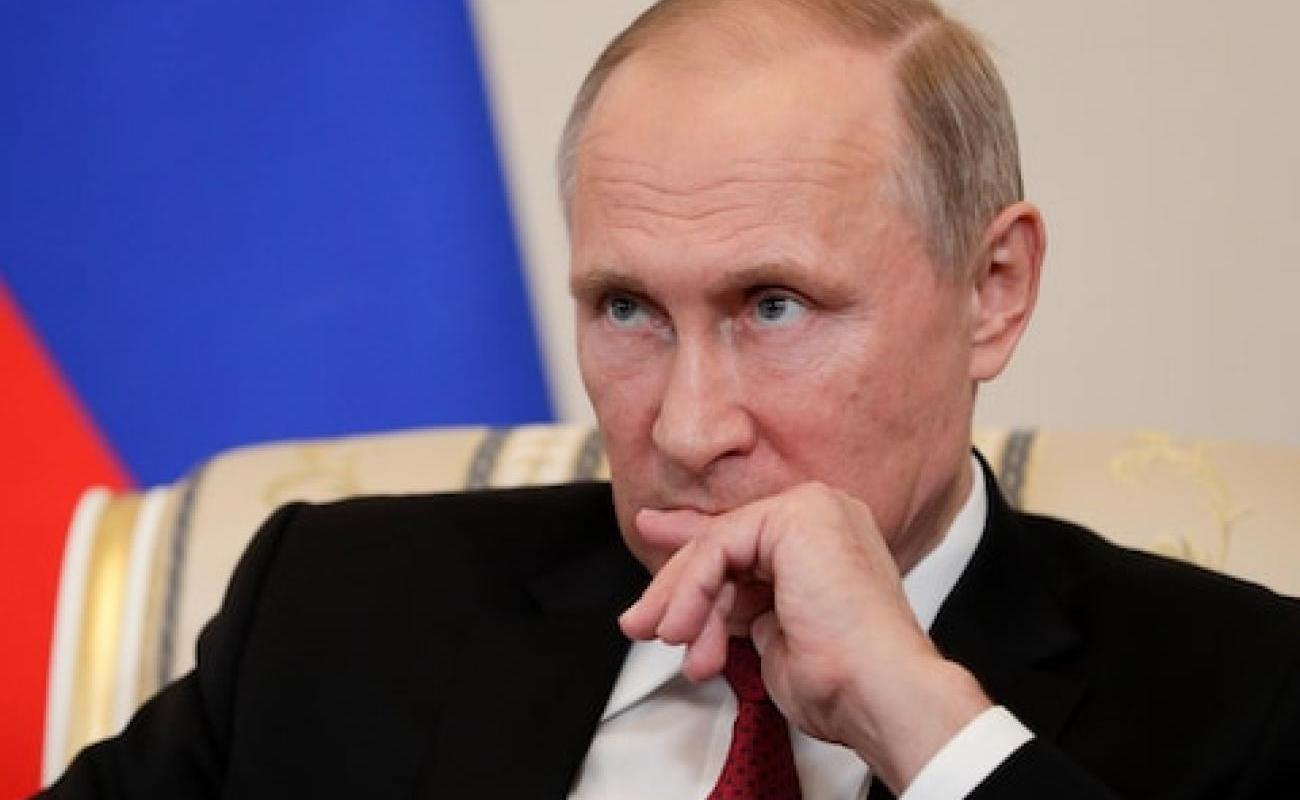The defeat of Putin in Ukraine is the defeat of the "Serbian world" in the Balkans
It will be the second defeat of "great Serbia", this time without a shot being fired.

This is an unprecedented sight. The Russian army flees from the front lines of the Kharkiv region, leaving behind tanks, artillery, and ammunition. Video clips recorded by drones with comical moments of the escape of the second army of the world flooded the Internet. This was not only the second major victory of the Ukrainian armed forces, after Kiev in the spring, this was also a public humiliation of Putin.
Praises are pouring in from outside, while official Kyiv is proud and optimistically restrained. It is celebrated in Ukraine. Such victories speak of the fact that David can defeat Goliath, but one should not rejoice too soon. The Russian army may not be able to reach Odessa, much less Warsaw, but Putin's evil empire has enough resources to continue to inflict enormous damage on Ukraine. However, what is quite conceivable after the Kharkiv and Kherson counter-offensives is the complete military defeat of Russia in Ukraine.
Awakening of "Greater Serbia"
Only after all the horrors of more than 200 days of Russian aggression, it is clear that Putin has been preparing for this kind of war in Ukraine since Maidan in 2014. The Greater Serbia project, defeated in the NATO bombing, was the Kremlin's ideal partner for the "second front" in Europe. The "Serbian world" as a euphemism for the revitalized idea of "Greater Serbia" was modeled on the "Russian world" and the Orthodox fundamentalism of Aleksandar Dugin.
The 600-meter Russian flag at the processions in Belgrade, the portraits of Putin and Z-Omani in Serbia are by no means spontaneous and spontaneous. The "Lithium Revolution" and the arrival of the political factor of the Serbian Orthodox Church at the head of Montenegro is only a corrective to the failed Russian coup d'état in Podgorica. Dodik's demolition of Bosnia and Herzegovina and Dayton as an American influence in the Western Balkans is a Russian task.
The basic question is, did Russia fight for its presence in the Balkans, or did it just walk in unhindered? The international community expected reconciliation in the region to happen by itself, without facing responsibility and the past. There was no insistence on a ban in the region on the denial of war crimes judged by the Hague Tribunal, and especially the denial of genocide. Instead of such laws and their implementation becoming part of the Euro-Atlantic integration process in the early 2000s, politicians were expected to lead interstate reconciliation, and quite the opposite happened.
Only half a year after the signing of the Peace Agreement in Minsk, Putin's fake peace in Ukraine, the Russian veto on the adoption of the United Nations Security Council Resolution on the twentieth anniversary of the genocide in Srebrenica was a clear call from Moscow for a new awakening of "greater Serbia". Since then, things have moved rapidly in the direction of the convergence of those two "worlds" - Serbian and Russian.
The birth of European despotism
After the annexation of Crimea and the war in Donbass, the West was not bothered much by the Serbian-Russian military exercises, the arming of Serbia, as well as the Russian military mission to the Serbian government. Trump's support for the exchange of territories now, in the conditions of the war in Ukraine, would mean a certain military conflict along all the old and unhealed wounds of the former Yugoslavia.
Although there was sense in the matter of changing the borders, Western initiatives to bring the region closer together were designed to favor populist leaders and the creation of a stabilocracy. The Open Balkans and Berlin Process initiatives continue to tolerate autocracy and Putinophily. It turned out that the "Serbian world" works perfectly well together with these two Western initiatives. Although everyone swears that it is not, the Open Balkans and the Berlin Process have become a substitute for European integration, which some leaders, like Aleksandar Vučić, are even more comfortable with than EU membership. In this way, Serbia can be connected to the West for years, without major consequences due to the decline of democratic values. It s the birth of European despotism.
"Serbian world" is just an empty story
Just as the "Serbian world" was awakened by the military rise of Russia, it will be defeated in the Western Balkans by the military defeat of Putin in Ukraine. It will be the second great defeat of "great Serbia", this time without a shot being fired.
When that happens, the West should not neglect that vacuum again. Let's hope that in the meantime, the "great Milošević" - Putin - will be found on the dock of some tribunal. If that happens, Russia will try him or hand him over to an international court, like Milosevic's Serbia, not because he regrets other people's victims, but because he lost the war in Ukraine.
Inspiration from Russia could naturally die out in Serbia. It was quickly forgotten how the Russians were laughed at in Serbia in the eighties and nineties. Their defeat in the Cold War, the collapse of the USSR, military weakness, political impotence, the poverty in which not only Russians but all former Soviet republics found themselves. Back then, even with Marković's salaries, Serbia laughed at Russian men and women who, out of desperation, left their health and lives on foreign construction sites and world brothels. At no moment did Serbia feel sorry for Russia, and it will not be after the military defeat and humiliation in Ukraine. It will be the only big disappointment, because the "Serbian world" without Russia is just an empty story.
